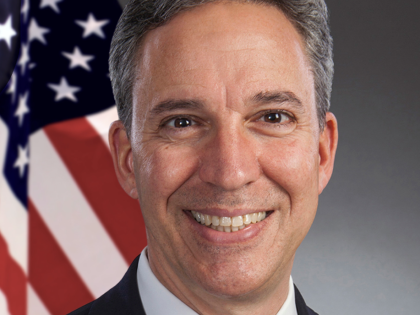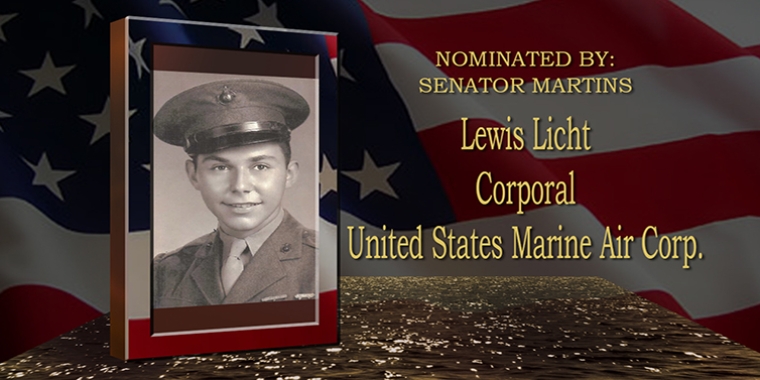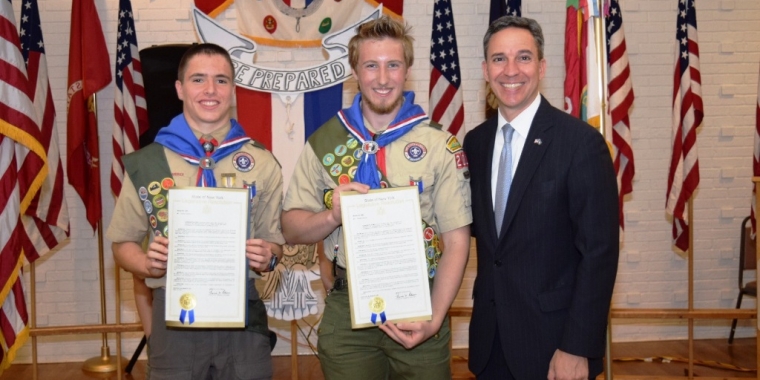
Senator Martins Attends Hearing on Public-Private Partnerships For Transportation
Jack M. Martins
September 28, 2011
-
ISSUE:
- Transportation

Senator Jack M. Martins recently attended a Senate Hearing, held by the Senate Standing Committee on Transportation, on Public-Private Partnerships to fund transportation infrastructure projects in New York State.
Public-Private Partnerships (P3s) are contractual agreements formed between a public agency and a private sector entity to finance the construction, maintenance and operation of transportation infrastructure projects. Given that the costs of needed infrastructure upgrades is outpacing traditional funding sources, New York State is exploring how to utilize P3s to repair and improve its transportation system.
“Public-Private Partnerships are something we must explore in light of the state’s needed repairs and improvements. Anything that can give our state an economic benefit is worth looking into. I want to thank Senator Fuschillo for holding this important hearing,” said Senator Martins.
The hearing was chaired by Senator Charles J. Fuschillo, Chairman of the Senate’s Transportation Committee, today chaired a Transportation Committee public hearing examining the use of public-private partnerships (P3s) to fund transportation infrastructure projects.
“Our state’s massive transportation infrastructure is in need of major repairs and improvements which cannot be financed through current funding sources alone. Many other states and governments have turned to public-private partnerships to help maintain and improve their infrastructure. New York State needs to examine how to effectively utilize this tool to help repair and upgrade its infrastructure and create jobs for residents,” said Senator Fuschillo.
The hearing comes at a time when the State is facing an infrastructure crisis. The state is replacing and rehabilitating far below the necessary number of bridges and highways to maintain a state of good repair. Nearly 6,200 of New York’s 17,400 state and local highway bridges are either structurally deficient or functionally obsolete, according to the State’s Department of Transportation.
Discussion at the hearing focused on how New York State can utilize public-private partnerships in order to expedite and better fund infrastructure projects throughout New York State. In addition, the hearing gathered input on legislation sponsored by Senator Fuschillo to utilize public-private partnerships to finance transportation infrastructure projects. Under the Innovative Infrastructure Development Act, the New York State Department of Transportation, New York State Bridge Authority, and New York State Thruway Authority would be given the flexibility to enter into P3 agreements to finance and deliver transportation infrastructure projects.
A number of experts from government agencies, the private sector, non-profit organizations, and labor & trade organizations offered their input on public-private partnerships in New York State, including:
* Stanley Gee, Deputy Commissioner, New York State Department of Transportation
* Marc Herbst, Executive Director, Long Island Contractors Association
* Tom Osborne, Managing Director of United Bank of Switzerland
* Roger Clayman, Executive Director, Long Island Federation of Labor
* William K. Duffy, Jr., President IUOE Local 138, 138A, & 138B
* Phil Russell, Director of P3 Project Delivery, Lochner
* Michael Polimeni, Member, Association for a Better Long Island
* John Buttarazzi, Skanska ISA Civil Inc.
* Kevin J. Thibault, Vice President, Parsons
* Marty Glennon, Attorney, Archer, Byington, Glennon, & Levine, LLP
Public-private partnerships (P3s) enable governments to partner with the private sector to finance the construction, maintenance, and operation of infrastructure projects. Given the private sector’s vested financial interest in completing projects on-time and under-budget, P3s often perform more efficiently than their counterparts and save money. Twenty-nine other states and Puerto Rico have enacted laws authorizing public-private partnerships for highway & bridge projects.
Utilizing P3s to get infrastructure projects moving would also bring tremendous economic benefits. The U.S. Department of Transportation estimates that 25,000 jobs are created for every $1 billion spent on transportation infrastructure projects. Creating jobs is critical in a state where over 744,000 people are unemployed.
Share this Article or Press Release
Newsroom
Go to NewsroomLewis Licht
May 20, 2016

